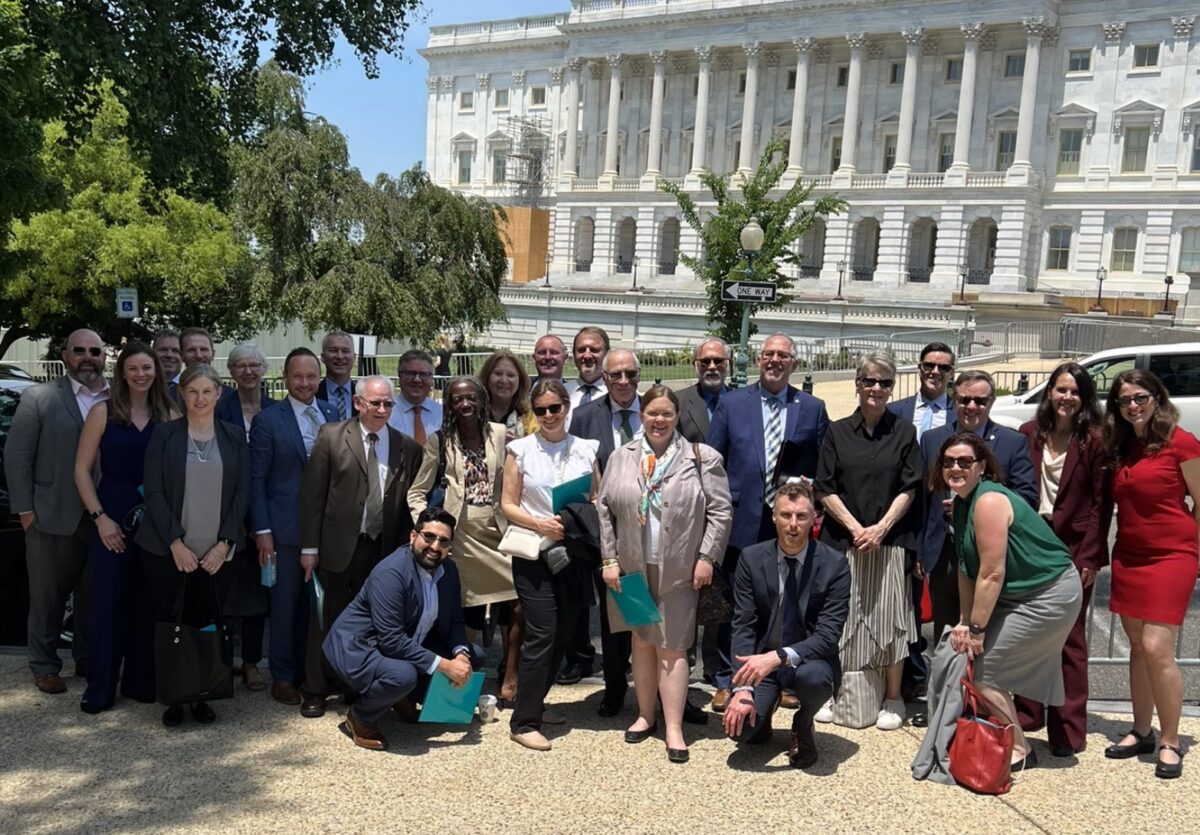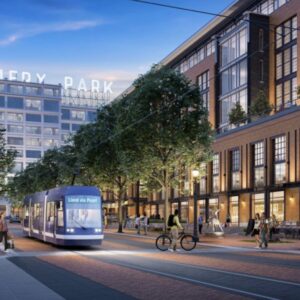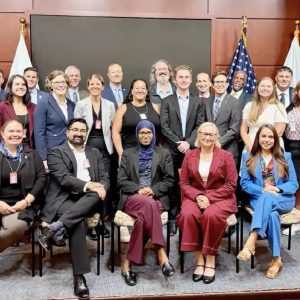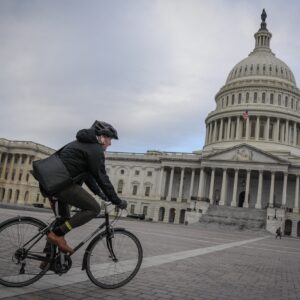
Over the past two days, a group of transportation bigwigs from around the region have rubbed shoulders with the most powerful decision makers in America. Members of Metro’s Joint Policy Advisory Committee on Transportation (JPACT) arrived in Washington D.C. on Tuesday to take part in an Oregon tradition that’s nearly four decades old.
“We can go and look at our legislators. Look them in the eye remind them of who we are and describe what we need.”
– Tom Kloster, Metro
JPACT’s roster is a who’s-who of regional mayors and top agency staff. Among attendees on this year’s trip are Portland City Commissioner Jo Ann Hardesty, the Oregon Department of Transportation Region 1 Director Rian Windsheimer, ODOT Urban Mobility Office Director Brendan Finn, City of Vancouver Mayor Anne McEnerny-Ogle, Portland Bureau of Transportation Director Chris Warner, and Metro councilors Juan Carlos González, Christine Lewis, and Shirley Craddick.
In a meeting about the trip last year, the Metro staffer who organized the trip (Government Affairs Director Tyler Frisbee, a former staffer for Congressman Earl Blumenauer) said this year’s trip is different. “JPACT has gone back and forth to D.C. for years asking for a huge transportation bill. And that has now happened. This is an exciting moment.”
Adding to this year’s excitement is that it’s the first trip in three years after meetings were shut down due to Covid. This JPACT delegation will be one of the first groups allowed in many Senate and House office buildings.
The group spent Wednesday on Capitol Hill in meetings with members of Congress. They met with members of the House Transportation & Infrastructure Committee (whose co-chair is Oregon’s very own Peter DeFazio) and had sit-down chats with representatives Suzanne Bonamici, Kurt Schrader, and Earl Blumenauer. They then met with senators Jeff Merkley and Ron Wyden.
With not as much specific policy to discuss this trip, the goal of the conversations was to remind members of the Oregon delegation about our region’s core transportation principles and make sure they are reflected as the Biden Administration implements the Bipartisan Infrastructure Law. Those principles (as passed by JPACT in a formal resolution last year) include:
1. Robustly fund multimodal transportation projects and transportation planning
2. Use transportation investments to reduce greenhouse gas emissions from the transportation sector, improve safety on our roads, and improve the resiliency and functionality of our transportation system
3. Ensure that transportation investments support improved outcomes for everyone, particularly people of color, who have historically been underinvested in or harmed by transportation funding and policy
4. Invest locally and support local engagement, direction, and planning of the transportation system
5. Improve transit access and impact, and help build more transit projects across the country
After the hard work on the Hill was done, JPACT hosted a cocktail party on a rooftop overlooking the National Mall where all members of the Oregon delegation and their staff were invited.
This morning it was back on the grind as their day was filled with meetings at the U.S. Department of Transportation and Federal Transit Administration. These conversations revolved around the need for funding of “regionally significant” projects like the ones Metro outlined in a letter to the FTA back in February.
In a Twitter update posted Thursday, Metro Councilor González said their top talking points were about, “electrification, urban arterials like 82nd Ave [and] TV Highway, bridges, economic development and more.”
Beyond serious talk about projects and funding, these trips are invaluable for the personal connections — both among JPACT members and with members of Congress and their staff. “We can go and look at our legislators. Look them in the eye remind them of who we are and describe what we need. This is really powerful,” said Metro planner Tom Kloster, who helped organized the trip.







Thanks for reading.
BikePortland has served this community with independent community journalism since 2005. We rely on subscriptions from readers like you to survive. Your financial support is vital in keeping this valuable resource alive and well.
Please subscribe today to strengthen and expand our work.
Sorry, politicians being politicians, I’m not too hopeful that anything meaningful for the average non-car transportation user will see benefit from this trip in the near term.
I jokingly call our streets “Mad Max training grounds”, but it’s getting less and less a joke as time goes on.
I thought Mad Max was “Portland training grounds.”
How is this different from a junket?
It is like a junket to Las Vegas. They are all hoping to get lucky with some free federal money. Dream on.
How great would it be if regional transportation advocates had our own trip? I bet the conversations would be about a lot smaller bridges.
We used to! Back in the day when bikes were a big(ger) thing in Portland/Oregon we had one of the largest delegations of advocates at the League of American Bicyclists annual National Bike Summit. It happens every March and we could start planning a trip for 2023.